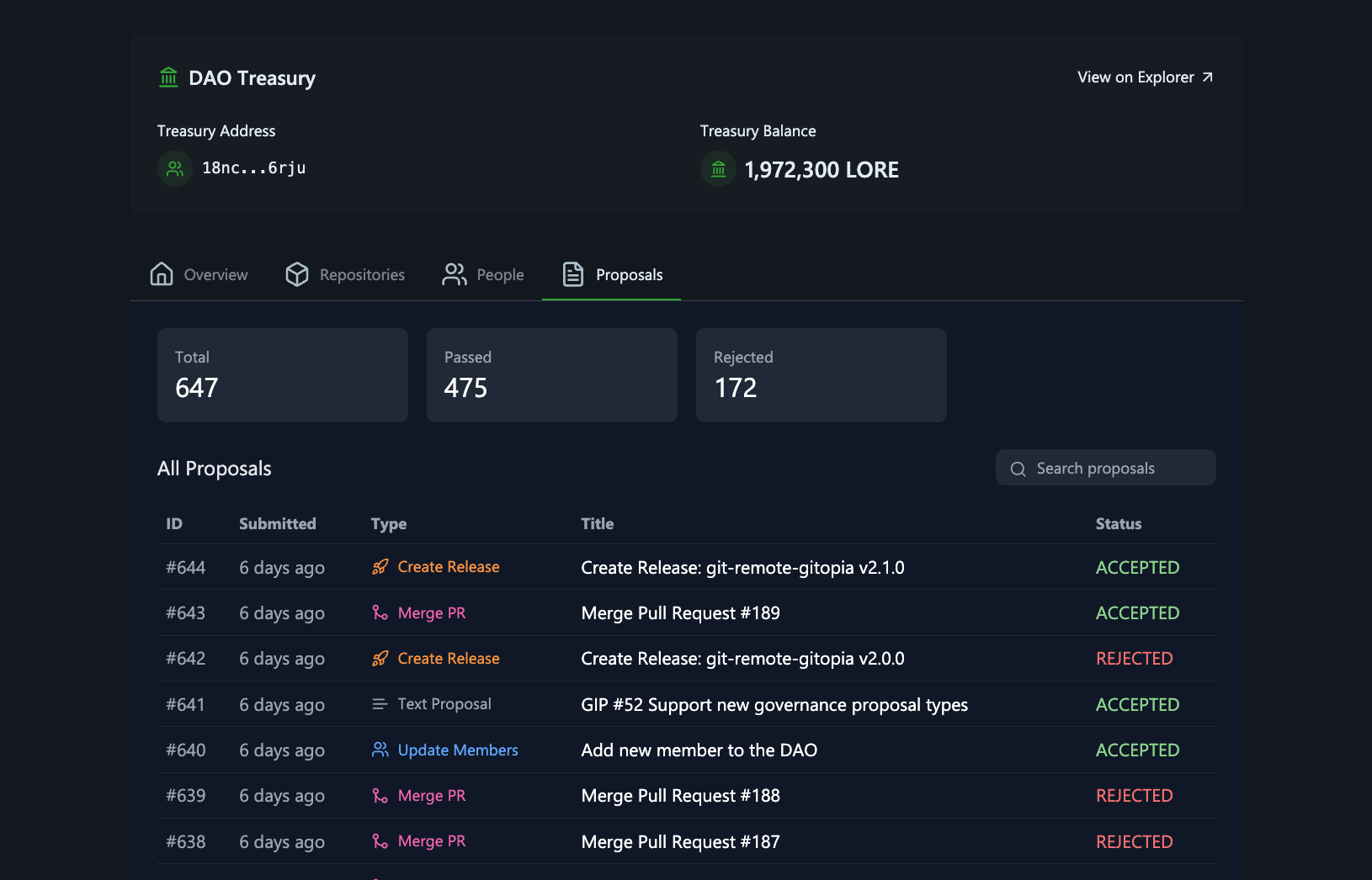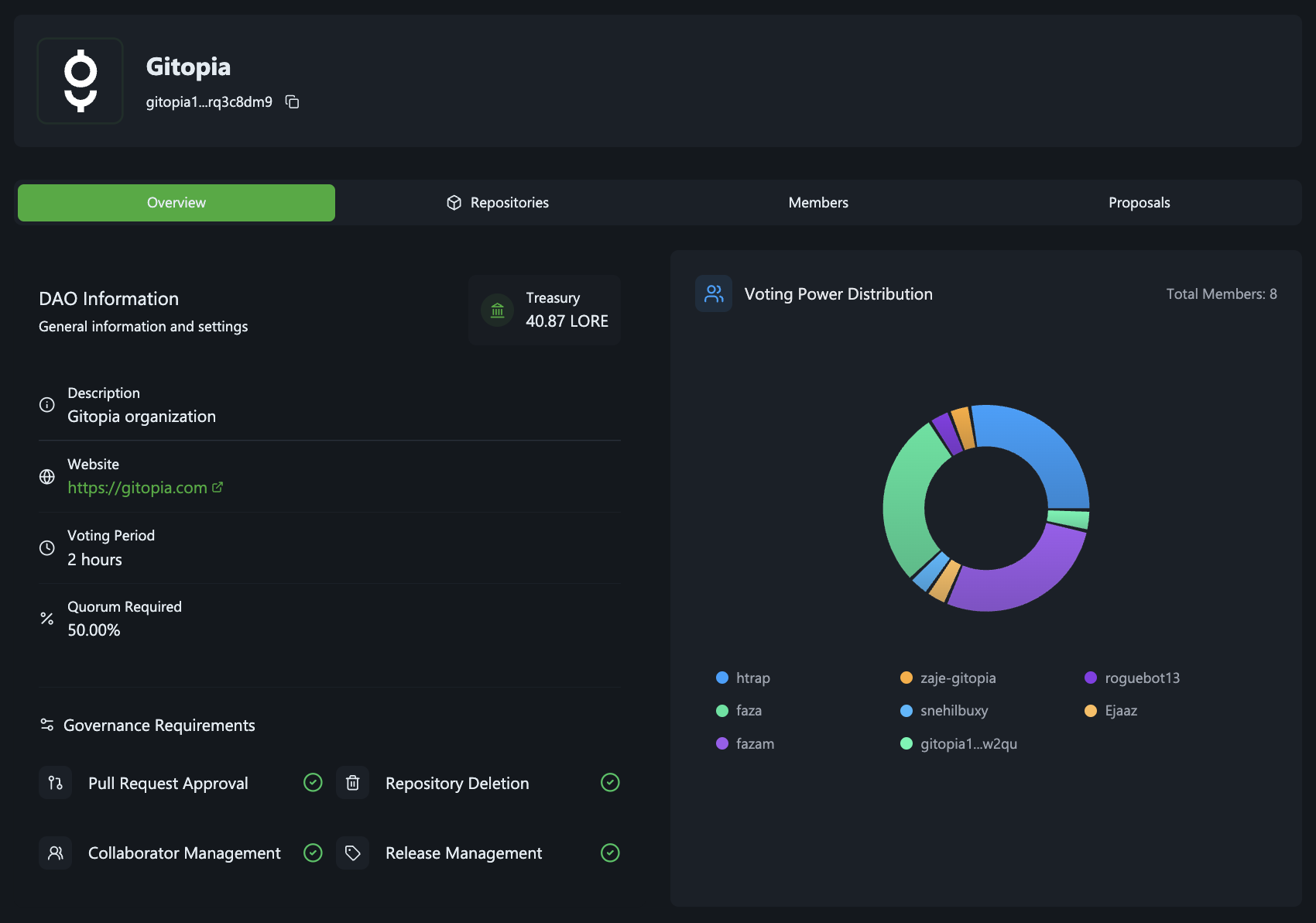Understanding DAOs on Gitopia

A DAO (Decentralized Autonomous Organization) is a community-led entity where decisions are made collectively by its members. On Gitopia, DAOs help manage open-source projects through transparent, community-driven decision making.
What Makes Gitopia DAOs Special?
Gitopia DAOs are designed specifically for open-source development:
Community Control
- Members vote on important decisions
- Voting power is distributed based on roles and contributions
- All decisions are transparent and recorded
Project Management
- Control repository changes
- Manage code releases
- Handle member permissions
- Distribute project funds

How Decisions Are Made
Voting System
Each member gets voting power (represented as a number of votes) that reflects their role in the project. For example:
- Core maintainers might have 100 votes
- Regular contributors might have 50 votes
- Community members might have 10 votes
When it's time to make a decision:
- Anyone can create a proposal
- Members vote using their assigned voting power
- If enough members participate (quorum) and approve, the proposal passes
- Changes are automatically implemented
What Can Be Voted On
Code Changes
- Approving pull requests
- Creating new releases
- Adding or removing collaborators
DAO Settings
- Changing voting periods
- Adjusting member voting power
- Updating security requirements
Treasury
- Spending project funds
- Setting up bounties
- Rewarding contributors
Managing Your DAO
Setting Up
Start with basic settings:
- Set a reasonable voting period
- Choose who can vote on what
- Assign initial member voting power
Define your process:
- How proposals should be written
- When voting is needed
- How changes are implemented
Running Smoothly
Keep members engaged:
- Share regular updates
- Welcome new contributors
- Explain voting decisions
Stay secure:
- Review member access regularly
- Monitor proposal activity
- Keep settings up to date
Getting Started
Ready to create or join a DAO?